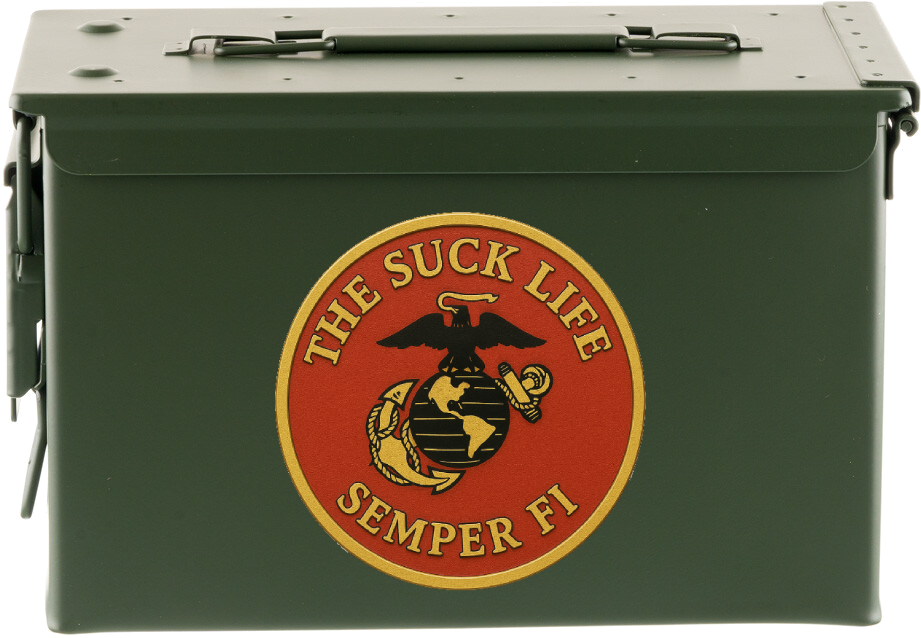In discussions about defense spending, some have suggested that disbanding the Marine Corps could be an effective way to reduce costs. For those weighing such proposals, it’s crucial to understand the full implications of this ridiculous suggestion. Let’s shed light on why the Marine Corps is far from expendable and how disbanding it could have dire consequences for national security. Understanding the Marine Corps’ unique role and the potential risks of eliminating this branch is essential for making informed decisions about defense policy.
The Unique Role of the Marine Corps
The Marine Corps is distinguished by its rapid deployment and amphibious warfare capabilities. In situations where immediate action is needed, the Marines are often the first to respond, capable of mobilizing quickly from sea to land. This unique capability allows the U.S. to address crises effectively, whether they involve military conflict or humanitarian aid.
Without the Marine Corps, the Army would need to take on these roles. While the Army’s rapid deployment units, such as the 82nd Airborne Division, are highly skilled, their focus is on airborne operations rather than amphibious assaults. This shift could result in delays and reduced effectiveness in responding to crises, which could compromise the U.S.’s ability to handle both military and humanitarian emergencies efficiently.
The Navy’s SEALs are another possible alternative, known for their special operations and maritime missions. However, their specialization in high-risk operations doesn’t extend to the broader and large-scale deployments that the Marine Corps handles. The Air Force’s strengths lie in air mobility and logistics, not in ground combat or amphibious operations, making them ill-suited to fully replace the Marines.
Historical Achievements
Since its founding in 1775, the Marine Corps has been at the forefront of numerous pivotal moments in American history. The Marines stormed the beaches of Iwo Jima in World War II, a battle that showcased their unparalleled bravery and strategic importance. In the Korean War, the Marines’ heroic stand at the Chosin Reservoir demonstrated their tenacity and ability to overcome overwhelming odds. During the Vietnam War, the Marines played a critical role in several significant battles, including the Battle of Hue during the Tet Offensive, where their urban combat skills were decisive in reclaiming the city, and the Battle of Khe Sanh, where their resilience under siege conditions became a symbol of Marine endurance and tactical acumen. More recently, the Marines have been crucial in both Iraq and Afghanistan, where their rapid deployment and versatility have been instrumental in achieving mission objectives and stabilizing volatile regions.
These achievements are not just historical footnotes; they underscore the unique capabilities and invaluable contributions of the Marine Corps to American military success and global stability.
A Crucial Analogy
Imagine a city with a comprehensive emergency response system: fire departments, police, and medical teams. Each has its unique role, but together they ensure the city’s safety and resilience. Now, picture deciding to eliminate one of these critical services to save money. Let’s say you choose to cut the fire department.
At first glance, it might seem like a way to reduce costs. However, consider what happens next:
-Rapid Response: The fire department is crucial for handling fires and emergencies quickly. Without them, when a fire breaks out, there’s a significant delay in response. This delay can lead to greater damage, increased risk to residents, and more costly repairs in the long run. Similarly, the Marine Corps provides rapid deployment capabilities, crucial for immediate responses in crises or conflicts. Without them, the U.S. military would face delays and reduced effectiveness in critical situations, potentially compromising national security.
-Specialized Capabilities: The fire department has specialized equipment and training to handle fires, hazardous materials, and rescues. Police and medical teams cannot fully replace these capabilities. Similarly, the Marine Corps has unique skills in amphibious warfare and rapid deployment that other branches cannot fully replicate. Their ability to operate from sea to land makes them indispensable for a wide range of missions, from combat to humanitarian aid.
-Comprehensive Coverage: The fire department handles specific emergencies that the police and medical teams are not equipped for. Removing it means those emergencies go unaddressed, or response becomes inefficient. In the military, eliminating the Marine Corps would leave gaps in rapid deployment and amphibious operations that the Army, Navy, or Air Force cannot cover entirely. This could weaken the U.S.’s ability to respond to global threats and safeguard its interests effectively.
Existential Risk to Democracy and Freedom
The Marine Corps isn’t just a military branch; it’s a cornerstone of U.S. national security and global influence. Disbanding it would not only leave gaps in rapid deployment and amphibious operations but also undermine the broader strategic capabilities of the U.S. military. This loss could weaken the nation’s ability to project power, protect democratic values, and secure freedoms both at home and abroad.
Just as removing emergency services from a city would create severe risks and inefficiencies, disbanding the Marine Corps would create significant vulnerabilities in national defense. The Marines’ unique role in ensuring quick and effective responses to global threats is essential for maintaining international stability and upholding the values that underpin American democracy.
While the desire to reduce defense spending is understandable, disbanding the Marine Corps is a step that could have far-reaching and negative consequences. The Marines provide a unique combination of rapid deployment, versatility, and specialized expertise that cannot be easily replicated by other branches. Integrating Marines into the Army, Navy, or Air Force would dilute their specialized capabilities and hinder the U.S.’s ability to respond swiftly and effectively to diverse crises. Their role is crucial in ensuring the U.S. can respond swiftly and effectively to a wide range of crises, thereby safeguarding national security, democracy, and the freedoms that define our nation. The history of the Marine Corps is a testament to its indispensable value, and its continued existence is vital for maintaining the security and values that America stands for.
Supporting Quotes
General James Mattis, former Secretary of Defense and Marine Corps General, once said, “The Marine Corps has been America’s shock troops. When something needs to be done immediately with high intensity, the Marines are always called first.”
Admiral William H. McRaven, former Navy SEAL and Commander of U.S. Special Operations Command, acknowledged, “The Marine Corps’ amphibious capabilities and rapid deployment are unmatched and essential for our national defense strategy.”
General Dwight D. Eisenhower, former President and Army General, noted during World War II, “The Marines have performed a hundred times better than anyone expected. They are a hard-hitting, adaptable force that has proven essential in every major battle.”
General Colin Powell, former Chairman of the Joint Chiefs of Staff, remarked, “The Marines are the most ready when the nation is least ready. Their ability to deploy rapidly and fight effectively in any terrain is unmatched.”
President Ronald Reagan famously said, “Some people spend an entire lifetime wondering if they made a difference in the world. The Marines don’t have that problem.”
Semper Fi!

Ads suck. This site is 100% ad-free and reader-supported.
If this article added value to your day or meant something to you, toss a couple bucks in the ammo can to keep us in the fight. Thank you.




 Semper Fidelis
Semper Fidelis

